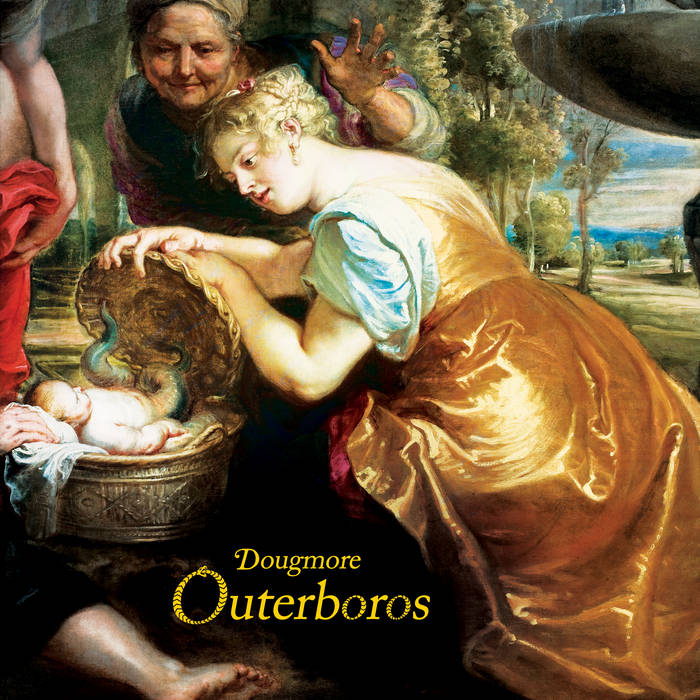Dougmore has been making a splash on the scene with feature pieces on No Depression and American Songwriter. He’s a member of newgrass darling Cricket Tell the Weather. But to me, he’s just Doug Goldstein, the guy I set next to in our last semester of senior year, who for fun would dress up in a green sweater vest and shorts and play the Doug theme song in the cafeteria. (This was just as YouTube was a Thing so joyful nostalgia was real and not a marketing ploy.) There’s something in the water up in Riverdale, because Karen of Karen and the Sorrows is also a reluctant alumnae of our school. (We have a tendency to produce vicious hypocrites and their spawn.) In preparing for this piece, it turns out that “Snake Oil and Bones” was inspired by that fateful English class, and it turns out we both crushed pretty hard on the same teacher. At that point, everyone was well into their senioritis, so Doug, me, and a few others carried the class. Digging through the lyrics shows that Doug was certainly paying attention to our discussions of Dante and fairytales.
The album’s Outerboros is both a reference to the ancient symbol of the ouroboros — a snake eating its own tale — and Doug’s experience in the New York. Like the ouroboros, this album is deeply layered thematically and is rife with references to classical literature and mythology — get Wikipedia ready. The album’s opener, “Outer Boroughs,” is easily my favorite. From the title, I was a little apprehensive of where it would go. Like many of my classmates, Doug’s parents made good and raised him in the suburbs. With all due respect to him, the increasing number of people with wealth who are choosing to live in and stay in cities is increasing my rent and blood pressure. Like the Avett Brothers’ “I And You And Love,” would Doug make the mistake of fetishizing his city digs at the expense of others — a faux bohemian vanity?
Unfortunately, I was wrong. Fortunately, Doug is way smarter than that. I suppose this is try of anywhere if you’re family’s stays there long enough, but New York is in reality a small town that’s filled with ghosts; there’s a particular corner in Washington Heights where I can stand and see the park my grandfather propose to my grandmother in, my uncle’s apartment from his med student days, my first apartment after college, the last hospital room I saw my grandmother in, and the ambulance bay she died in. As the crow flies, it’s not too far from where Doug and I sat in late May afternoons daydreaming about our teacher and college (and as the train flies, it’s about a 15-minute trip.) And that’s where Outerboros sets the stage: Doug returning to the ground where his ancestors first set foot on American soil, and pondering the ebb and flow of that history: from immigrant neighborhoods to the suburbs and right back to them as he charts his own way:
Ferry’s all aboard Staten Island’s teeming shore,
Gal in Green, seafoam queen, let me through your golden door.
Harbor water deep, lady’s vigil still she keeps –
Stares a hole through the boat, she staring square at me.
Here I stand, where my fathers stood in line,
to take a new name and a new life to find.
If liberty’s a queen lights the American dream,
Oh the beacon I seek ain’t what they had in mind
It’s a straightforward folk song until Doug portrays himself as an ouroboros — the central theme of the aforementioned final track. In between, Doug enlists his bandmates from Cricket Tell the Weather to deliver Irish folk-inspired tunes, a psychedelic epic called “Moondials” that displays what Doug absorbed from his travels in India, and the masterful “Harpens Kraft” that evokes medieval ballads and epic poetry. As eclectic as it sounds, these influences are woven together by Doug’s masterful playing and confident, gorgeous lyrics. This is one of my favorite albums of the year, hands down, and it’s not just because I know the guy.
Help support Adobe & Teardrops through my Patreon!

